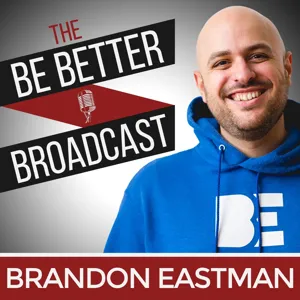Podcast Summary
Women in STEM face unique challenges based on gender and race: Discrimination and social stressors impact careers of women in STEM, particularly women of color, requiring ongoing efforts to create a more inclusive and equitable environment.
Women in STEM fields, particularly women of color, face unique challenges that go beyond academic merit. Discrimination based on both gender and race can limit opportunities for advancement, and when combined with social stressors and personal emergencies, these challenges can significantly impact careers. Dr. Eve Higginbotham, an ophthalmologist and vice dean for inclusion, equity, and diversity at Penn Medicine, shared her personal experiences of being denied opportunities and struggling to balance caretaking responsibilities with her academic career during Hurricane Katrina. These challenges are not isolated incidents but systemic issues that require ongoing efforts to address and create a more inclusive and equitable environment in STEM fields.
Impact of Pandemic on Women's Careers in STEM: The pandemic has disproportionately affected women in STEM, requiring institutions to offer more support through flexible work arrangements, mental health resources, and childcare funding.
The pandemic has significantly impacted women's careers in STEM, and this was explored through a comprehensive study led by Dr. Eve Higginbotham from the National Academies of Sciences, Engineering, and Medicine. The study, which included data from over 900 women, revealed that women have faced numerous challenges, particularly those early in their careers, due to the pandemic. Previously, they were often advised to be resilient and to keep pushing through difficult times. However, the study highlighted the need for institutions to offer more support, such as flexible work arrangements, mental health resources, and funding for childcare. It's crucial for institutions to recognize the unique challenges faced by women in STEM and to provide the necessary resources to help them navigate their careers during and beyond the pandemic.
Institutions' Role in Supporting Women's Careers During the Pandemic: Institutions must acknowledge the impact of the pandemic on women's productivity and provide resources and support to help them balance their home and work lives and meet career requirements.
While individuals need to manage their own work-life balance in the context of the hustle culture, institutions also bear an important responsibility. The October survey revealed that women faced significant challenges in balancing their home and work lives during the pandemic, leading to decreased productivity, fewer publications, and less representation in science literature. Women, particularly those who are adjunct faculty, are the most vulnerable in this regard. The pandemic has disrupted the tenure track for many women, making it difficult for them to meet the publication and grant requirements. Institutions can extend tenure clocks, but this may not be enough. To support women's careers, institutions must recognize the impact of the pandemic on women's productivity and provide resources and support to help them overcome these challenges.
The gender gap in academia could widen due to caregiving challenges: The pandemic has highlighted the need for institutions to provide caregiving support to prevent the loss of intellectual contributions and talent in academia due to the 'gender recession'.
The gender gap in academia, particularly in STEM fields, could widen due to the challenges women face in balancing caregiving responsibilities and their academic careers, which has been exacerbated by the pandemic. This issue, known as the "gender recession," could lead to a loss of intellectual contributions and talent in the scientific community. Currently, caregiving is primarily viewed as the responsibility of families and individuals, but institutions are being urged to provide on-campus caregiving support, such as daycare centers, to make it easier for young parents to juggle their responsibilities. The pandemic has brought this issue to the forefront, but more progress is needed to create a supportive environment for caregivers in academia.
Addressing mental health issues for women in STEM: Women in STEM face high rates of depression, anxiety, and insomnia. Institutions must support faculty, address hustle culture, and foster a diverse, inclusive environment to boost innovation and equity.
Urgent need to address mental health issues affecting women in STEM fields, which significantly impact their overall well-being and retention in academia. The National Academy's recent report highlighted the prevalence of depression, anxiety, post-traumatic stress, and insomnia among women in scientific disciplines, emphasizing the need for change. Institutions must recognize their responsibility to support faculty and foster a more inclusive and diverse environment. This includes addressing the hustle culture that prevails in some scientific disciplines and recognizing the importance of balancing various responsibilities. By enhancing faculty vitality, we can boost innovation and ensure a more equitable future for women in STEM. To learn more, listen to the full report in the link in the episode description.
Navigating Complex Financial Landscapes with BlackRock: BlackRock's CEO, Larry Fink, discusses the importance of long-term investing, BlackRock's role in helping individuals and institutions navigate complex financial situations, and the growing importance of sustainability in investment decisions.
Learning from the latest episode of The Bid, featuring Larry Fink, the Chairman and CEO of BlackRock, is that investors are facing significant challenges, particularly in the areas of retirement and other situations where global capital markets can provide solutions. Fink discussed the importance of long-term investing and the role that BlackRock plays in helping individuals and institutions navigate these complex financial landscapes. He also touched upon the importance of sustainability and how it is becoming a critical factor in investment decisions. Listeners were encouraged to tune in to The Bid for insights from BlackRock's thought leaders and to stay informed about market trends and developments. Overall, the episode underscored the importance of having a solid investment strategy and the value of expert guidance in navigating the ever-changing financial markets.






